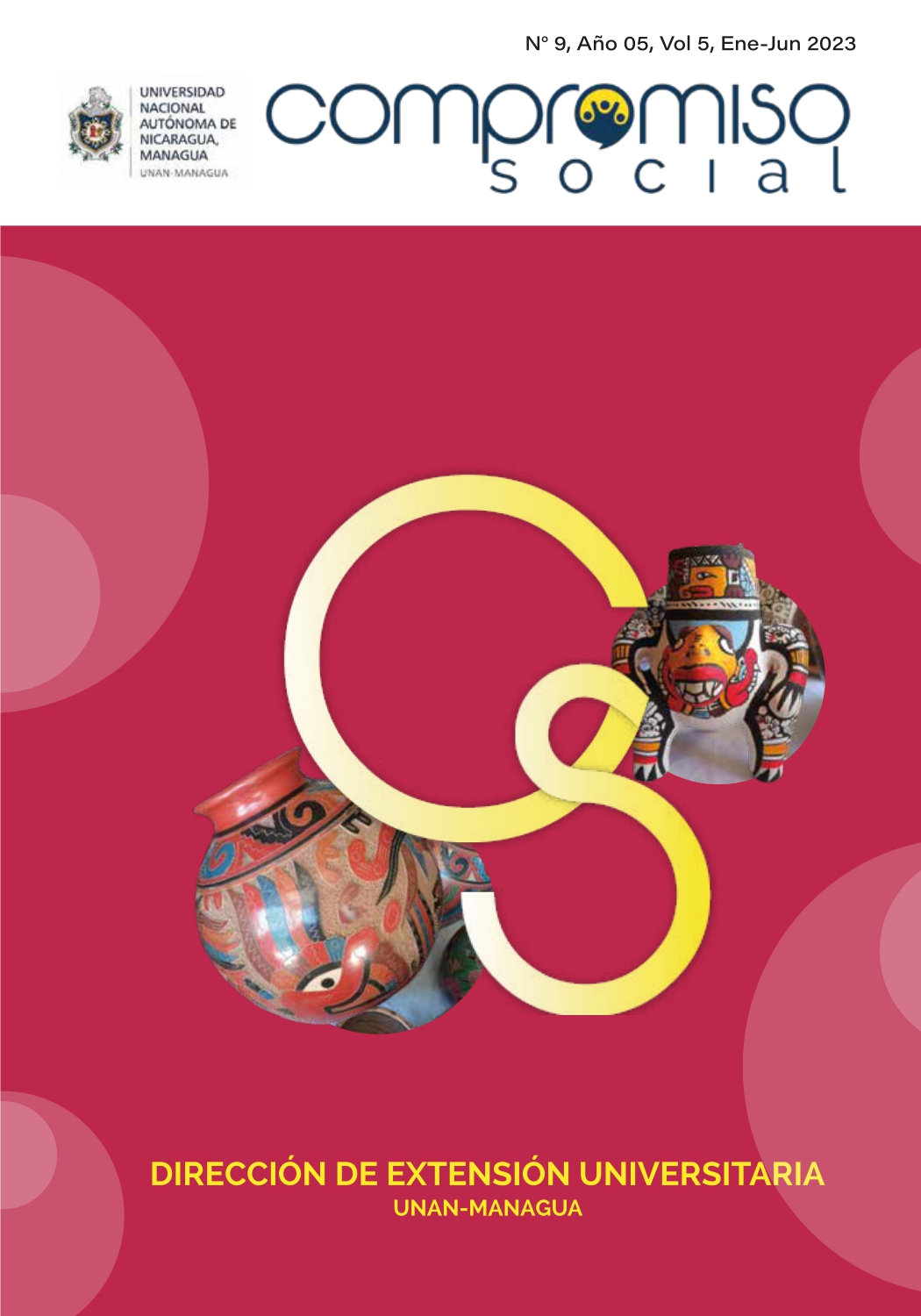Tracing the Historical Memory of Nicaraguan cities: The role of History as a science and its Contribution to University Extension as an academic experience at the Universidad Nacional de Ingeniería
DOI:
https://doi.org/10.5377/recoso.v9i9.18581Keywords:
Historical memory, Cities, Nicaragua, , History as science, University Extension, National University of Engineering, History as science, University Extension, National University of EngineeringAbstract
The article "Tracing the historical memory of Nicaraguan cities: The role of history as a science and its contribution to the University Extension as an academic experience at the National University of Engineering", presents the academic experience of model making as a strategy for the rescue of the historical memory of different cities of Nicaragua. It was carried out with three types of methods, these being: analytical-synthetic, participatory action and oral history, to understand the history of cities and recreate historical sites relevant to the community in the models. More than 200 students were involved in this process and more than 20 models of cities in the country were presented. The students were successful in their research and recreated ancient historical sites that had social relevance at a certain time in the history of the cities investigated. History as a science contributed to two major substantive functions of the university: research and university extension. The university extension allows the student community to get closer to society, and in this case, the academic experience allowed students to get involved in the recovery of historical memory and become aware of its importance in the construction of the identity of cities and the preservation of culture. The academic experience presented in the article demonstrates the importance of history as a science and its contribution to university extension as an academic experience, as well as the need to recover the historical memory of cities for the preservation of culture and the construction of identity.
Downloads
References
Creswell, J. W. (2013). Qualitative inquiry and research design: Choosing among five approaches. Sage publications.
Denzin, N. K., & Lincoln, Y. S. (2011). The SAGE handbook of qualitative research. Sage.
Fals-Borda, O. (2001). Investigación-acción participativa. Cuadernos de Ciencias Sociales, 1, 17-30.
Fontana, A., & Frey, J. H. (2005). The interview: From neutral stance to political involvement. Handbook of qualitative research, 3, 695-727.
Halbwachs, M. (1994). La memoria colectiva. Ediciones Akal.
López, J. (2018). Extensión universitaria y recuperación de la memoria histórica: Experiencias desde la Universidad Nacional de Ingeniería. Revista de Historia, 14(2), 45-67.
Ramírez, L. (2004). Metodología de la investigación cualitativa (p. 23). Universidad Nacional Autónoma de México.
Rojas, M. (2017). Historia local y regional en Nicaragua: Una mirada desde el presente. Revista de Ciencias Sociales, 23(1), 18-25.
Thompson, P. (2003). La voz del pasado: Historia oral (p. 47). Ediciones Crítica.
Valdés, F. (2015). La extensión universitaria como experiencia académica y social. Universidad de La Habana.Relación de entrevistasChristopher Joan López Vado
Entrevista Realizada a Eliel Lira, 19 de marzo del 2023.
Entrevista Realizada a Adolfo Collado, 23 de marzo del 2023.
Downloads
Published
Issue
Section
License
Copyright (c) 2023 Universidad Nacional Autónoma de Nicaragua, Managua(Unan-Managua)

This work is licensed under a Creative Commons Attribution-NonCommercial-ShareAlike 4.0 International License.




